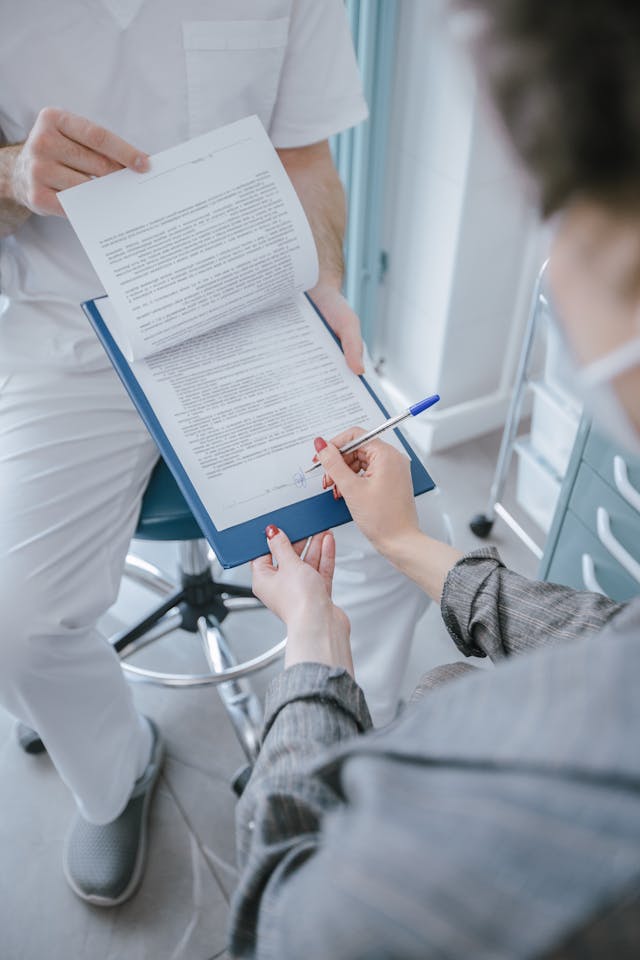Motor Vehicle Accidents

Understanding Motor Vehicle Accidents
Motor vehicle accidents are common on our roads, affecting millions of individuals each year. These incidents can range from minor fender benders to catastrophic collisions that result in severe injuries or fatalities. Understanding the nature of these accidents is crucial for anyone involved, as the immediate aftermath can be confusing and overwhelming.
The Scope of the Problem
According to the National Highway Traffic Safety Administration (NHTSA), tens of thousands of people die in motor vehicle accidents annually, with many more suffering serious injuries. The emotional and financial toll of these accidents can be overwhelming, making it essential for victims to understand their rights and options for legal recourse.
Beyond the immediate physical impact, victims often face long-term challenges, including medical expenses, lost wages, and psychological trauma. The economic cost to society as a whole reaches into the hundreds of billions of dollars each year when factoring in medical care, property damage, and lost productivity.
Types of Motor Vehicle Accidents
Motor vehicle accidents can take many forms, including:
- Rear-End Collisions: These occur when one vehicle crashes into the back of another. They are often caused by distracted driving or sudden stops. While commonly viewed as minor, these accidents can result in serious injuries such as whiplash and spinal damage, particularly when occurring at higher speeds.
- Side-Impact Collisions: Also known as T-bone accidents, these happen when one vehicle strikes the side of another. They can be particularly dangerous due to the lack of protection on the sides of vehicles. Intersections are common locations for these accidents, often resulting from failure to yield or running red lights.
- Head-On Collisions: These are among the most severe types of accidents, occurring when two vehicles collide front-to-front. They often result in serious injuries or fatalities due to the combined force of both vehicles’ momentum. Wrong-way driving and impaired driving are frequent causes.
- Single-Vehicle Accidents: These involve only one vehicle and can occur due to factors like driver error, mechanical failure, or adverse weather conditions. They often involve running off the road, hitting fixed objects, or rollover incidents.
- Multi-Vehicle Pile-Ups: These accidents involve three or more vehicles and can be particularly complex in terms of liability and insurance claims. They frequently occur in adverse weather conditions or when one collision triggers a chain reaction on highways.
Common Causes of Motor Vehicle Accidents – Understanding your legal rights.
If you’ve been injured in a motor vehicle accident, understanding its cause is crucial for building a strong legal case and securing the compensation you deserve. Insurance companies often try to minimize payouts, but identifying the specific factors that contributed to your accident can help establish liability and strengthen your claim. Here are the most common causes that could support your case:
Distracted Driving
If the driver who hit you was texting, talking on the phone, eating, or engaging in other distracting activities, this strengthens your claim significantly. The NHTSA reports over 3,000 deaths annually from distracted driving, and courts take these cases very seriously. Cell phone records, witness statements, and traffic camera footage can help prove distracted driving, making your case more compelling.
Driving Under the Influence
If you suspect the other driver was impaired by alcohol or drugs, this could substantially increase your potential compensation, including possible punitive damages. Even if their BAC was below the legal limit of 0.08%, any impairment that contributed to your accident can be used to establish liability. Police reports, blood test results, and field sobriety test records are crucial evidence in these cases.
Speeding and Reckless Driving
Excessive speed often leads to more severe injuries and stronger legal claims. If the other driver was speeding, making aggressive lane changes, tailgating, or ignoring traffic signals, these behaviors demonstrate negligence. Traffic camera footage, skid marks, vehicle damage patterns, and expert accident reconstruction can help prove these violations and strengthen your case.
Weather-Related Negligence
While bad weather conditions like rain, snow, or ice don’t automatically make someone liable, drivers are required to adjust their behavior accordingly. If the other driver failed to slow down or maintain a safe distance in poor weather, they may be held responsible for your injuries. Weather reports and expert testimony can help establish that the other driver’s choices, not just the weather, caused your accident.
Vehicle Defects and Maintenance Issues
If mechanical failure contributed to your accident, you might have claims against multiple parties, including:
- The other driver (for poor maintenance)
- The vehicle manufacturer (for defective parts)
- The maintenance facility (for negligent repairs)
These cases often result in larger settlements because multiple insurance policies may be involved.
Understanding these causes helps you and your legal team build a stronger case for compensation. Document everything related to your accident, seek medical attention promptly and consult with an experienced attorney who can help identify all potential sources of liability and compensation. Remember, insurance companies have teams of lawyers protecting their interests – you deserve someone fighting just as hard for yours.
The Impact of Motor Vehicle Accidents
After a serious motor vehicle accident, you may find yourself overwhelmed by physical pain, emotional trauma, and mounting bills. Understanding the full scope of your accident’s impact is crucial for securing the compensation you deserve. Insurance companies often try to settle quickly before the true extent of your injuries and losses becomes clear.
At Legal Support Law, we are here to help you navigate this challenging process and ensure that you receive the compensation you are entitled to.
Here’s what you need to know about documenting your damages:
Physical Injuries You Can Claim
Your settlement should account for all injuries, both immediate and long-term.
Legal Support Law can connect you with experienced attorneys who understand how to document and present your injuries to maximize your claim effectively:
- Whiplash and Neck Injuries: While insurance companies often try to minimize these claims, whiplash can lead to chronic pain and long-term disability. Our network of attorneys will help you document all symptoms, even if they seem minor at first, ensuring that your claim reflects the true impact of your injuries.
- Fractures and Orthopedic Injuries: Beyond immediate treatment costs, you may need future surgeries or develop arthritis. Your claim should include potential future medical expenses. Legal Support Law can assist in projecting these costs and gathering the necessary medical documentation.
- Head Injuries: Even “mild” concussions can have lasting effects on your work and daily life. Keep detailed records of any cognitive changes, memory issues, or headaches. Our attorneys can help you compile this information and connect you with medical experts who can testify to the long-term effects of your injuries.
- Spinal Cord Injuries: These catastrophic injuries often require lifelong care. Your claim should include home modifications, adaptive equipment, and long-term care costs. Legal Support Law can guide you through the process of documenting these needs and ensuring they are included in your compensation claim.
- Soft Tissue Injuries: While harder to prove, these injuries can cause chronic pain and limit your ability to work. Consistent medical documentation is crucial. Our team can help you gather the necessary evidence to support your claim for these often-overlooked injuries.

Emotional and Psychological Damages You Can Recover
Mental health impacts are compensable damages, and Legal Support Law can help you document these effects effectively:
- Anxiety and Depression: Keep records of therapy sessions, medication costs, and how these conditions affect your daily life and relationships. Our attorneys can assist in compiling this information to strengthen your claim.
- Post-Traumatic Stress Disorder (PTSD): Expert testimony can help establish the long-term impact of PTSD on your earning capacity and quality of life. Legal Support Law can connect you with mental health professionals who can provide the necessary evaluations and testimony.
- Loss of Enjoyment of Life: If you can no longer engage in activities you once enjoyed, this can increase your compensation. Our legal team will work with you to articulate how your injuries have affected your quality of life.
Financial Losses to Include in Your Claim
Don’t settle before calculating all current and future losses. Legal Support Law can help ensure that every aspect of your financial loss is accounted for:
- Medical Expenses: Include all treatment costs, from emergency care to ongoing therapy. Your attorney can help project future medical needs and ensure these are included in your claim.
- Lost Income: Calculate not just missed work, but reduced earning capacity if you can’t return to your previous job. Our team will assist you in documenting your employment history and potential future earnings.
- Property Damage: Beyond vehicle replacement, include rental car costs and personal items damaged in the crash. Legal Support Law can help you gather the necessary documentation to support these claims.
The Importance of Legal Representation
Remember, insurance companies profit by paying you less than you deserve.
An experienced personal injury attorney from Legal Support Law can help ensure all these impacts are properly documented and valued in your claim. We understand the tactics used by insurance companies and will advocate for your rights throughout the process.
Don’t sign anything or give recorded statements without legal representation – your financial future may depend on it. With our support, you can focus on your recovery while we handle the complexities of your case, ensuring that you receive the compensation you deserve.
Building a Strong Case After Your Accident: Essential Evidence and Legal Steps
After a severe accident, what you do in the first days and weeks can make or break your case. Insurance companies begin building their defense immediately – you need to be equally proactive in protecting your rights.
Here’s your roadmap to building a strong claim:
Critical Evidence to Gather Immediately
Don’t let crucial evidence disappear:
Police Reports and Emergency Records
Request copies immediately. These initial documents often contain critical details about faults that may be disputed later. Your attorney can help interpret any unfavorable language.
Medical Documentation
Start a detailed file of ALL medical visits, including:
- Emergency room records
- Follow-up appointments
- Physical therapy sessions
- Mental health treatment
- Medication prescriptions
Never skip appointments – gaps in treatment can be used against you.
Witness Information.
Time is crucial. Witnesses become harder to locate, and memories fade quickly. Get:
- Names and phone numbers
- Written statements while memories are fresh
- Contact information for passengers in all vehicles
Photo and Video Evidence
Document everything:
- Accident scene from multiple angles
- Vehicle damage
- Your injuries (photograph regularly as they heal)
- Traffic cameras or security footage (request preservation immediately)
- Weather conditions

Navigating the Legal Process
The legal process following a motor vehicle accident can be complex. Here’s a brief overview of the steps involved:
Initial Consultation
Consulting with an experienced attorney is the first step in understanding your options. They can evaluate your case, explain your rights, and guide you through the legal landscape.
Filing a Claim
Your attorney will help you file a personal injury claim against the responsible party. This process involves submitting the necessary documentation and evidence to support your case.
Negotiating with Insurance Companies
Insurance companies often aim to minimize payouts. A skilled attorney can ensure that you receive fair compensation and that your rights are protected during negotiations.
Going to Trial
If a fair settlement cannot be reached, your case may proceed to trial. Your attorney will represent you in court, presenting evidence and advocating for your rights.
Why Choose Legal Support Law?
Legal Support Law is dedicated to providing personalized support to motor vehicle accident victims. Here’s what sets us apart:
Legal Support Law is dedicated to providing personalized support to motor vehicle accident victims. Here’s what sets us apart:
- Expertise: Our network includes attorneys with extensive experience in motor vehicle accident cases, ensuring you receive knowledgeable guidance.
- Client-Centered Approach: We prioritize your needs and work tirelessly to ensure you feel supported throughout the legal process.
- Transparent Pricing: Our partners offer clear, all-inclusive fee structures, so you know what to expect from the start.
- Comprehensive Support: From the initial consultation to case resolution, we are here to assist you.
Conclusion
Motor vehicle accidents can disrupt lives, but you don’t have to face the aftermath alone.
Legal Support Law is here to connect you with experienced attorneys who can help you navigate the legal process and secure the compensation you deserve. Your journey to justice starts with the right support, and we are committed to providing it.

Frequently Asked Questions
How long do I have to file a claim after an accident?
The time limit for filing a personal injury claim varies by state. Generally, you have a limited time to file a claim, often between one to three years. It's essential to consult with an attorney as soon as possible to ensure you meet all deadlines.
What if the other driver is uninsured?
If the other driver is uninsured, you may still have options for compensation. Your own insurance policy may include uninsured motorist coverage, which can help cover your medical expenses and damages. Consulting with an attorney can help you explore your options.
What if the insurance company claims I was partially at fault?
Don't accept blame without consulting us. We can:
- Investigate to prove the other driver's fault
- Use accident reconstruction experts
- Challenge police report conclusions
- Protect your rights under comparative fault laws
You may still be entitled to significant compensation even if you were partially at fault.
Can I still recover damages if my injuries weren't apparent immediately?
Yes. Many serious injuries, particularly soft tissue and brain injuries, develop symptoms days or weeks after an accident. We can:
- Connect you with appropriate medical specialists
- Document the progression of your injuries
- Counter insurance company claims about pre-existing conditions
- Ensure all accident-related injuries are included in your claim
Do I need an attorney for my case?
While it’s possible to handle a motor vehicle accident claim on your own, having an experienced attorney can significantly improve your chances of receiving fair compensation. An attorney can navigate the legal process, negotiate with insurance companies, and represent you in court if necessary.
What if the insurance company wants a recorded statement?
Never give a recorded statement without legal representation. Insurance adjusters are trained to ask questions that may harm your claim. Let us protect your rights and handle all insurance communication.
